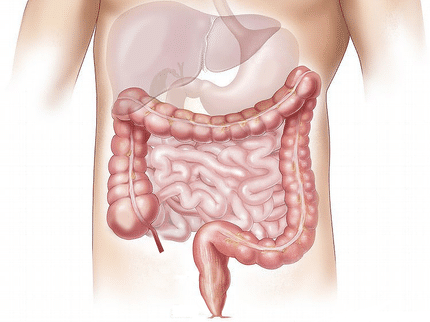Artificial sweeteners cause confusion in the brain
Artificial sugar substitutes stimulate the appetite in the brain and influence the ability to make decisions
Advertisement
Artificial sweeteners are practically calorie-free and are increasingly being used in the food industry, for example in soft drinks. A study led by the University of Southern California (USC) and involving researchers from Tübingen has now shed light on the effects of excessive consumption of artificial sweeteners such as sucralose on the brain. Although calorie-free, sucralose stimulates appetite in the brain, especially in people with obesity. Researchers from the University Hospital of Tübingen, Helmholtz Munich and the German Center for Diabetes Research (DZD) were involved in the study.
Artificial sweeteners have been used in the food industry for over 130 years. The first saccharin sweetener was discovered in Germany in 1878. Sales of artificial sugar substitutes, most of which are calorie-free, have increased significantly, particularly in recent years. In Germany, one in two people reach for products containing artificial sweeteners every day. One of the reasons given for this is a diet- and calorie-conscious lifestyle. It is precisely this point that the new study results seem to be shaking. As early as 2023, the World Health Organization issued a recommendation that artificial sweeteners should not be used as a substitute for sugar when it comes to weight loss.
Appetite and hunger increase
Sucralose leads to increased brain activity in the hypothalamus, an important control center of the brain. This area of the brain is responsible, among other things, for controlling food intake and the feeling of hunger. Sucralose activates precisely this area of the brain and this in turn is associated with a stronger assessment of the feeling of hunger. "Artificial sweeteners, such as sucralose in our case, can influence appetite regulation in the brain to an extent that has a detrimental effect on weight," explains Prof. Dr. Stephanie Kullmann from the Tübingen University Clinic for Diabetology, Endocrinology and Nephrology.
Artificial sweeteners cause confusion in the brain
The research team assumes that artificial sweeteners confuse the brain by sending it signals of sweetness without providing the calories the brain needs. The hypothesis that the brain sends the signal to eat more when the promised calories do not arrive is already known from previous studies.
The study involved 75 test subjects in the USA. They were asked to drink one of three drinks on three different dates: tap water, sweetened water with sucralose and sweetened water with sugar. Sucralose is around 600 times sweeter than conventional sugar. At each visit, the research team examined the participants' fasting blood sugar levels, followed by a brain scan using functional magnetic resonance imaging (fMRI), which tracks blood flow to detect activity in different regions of the brain. After the first scan, the test subjects drank one of the three drinks and were then examined again. In addition to the brain scans, blood samples were taken from the study participants after they had drunk the drinks and they were asked to assess their individual feelings of hunger.
Astonishing results
Using the self-tests, the researchers were able to determine that sucralose increased the participants' feeling of hunger by around 17 percent, particularly in subjects who were morbidly obese. The research team was also able to demonstrate stronger connections to other parts of the brain that are responsible for controlling motivation. "Sucralose appears to affect decision-making ability," says study leader Prof. Kathleen A. Page from USC. "For example, we found increased brain activity between the hypothalamus and the anterior cingulate cortex, which controls the risks and benefits of a decision," adds Prof. Kullmann. Another finding from the study: "The blood tests showed that sucralose has no effect on the hormones that the brain uses to tell us when we are full and no longer hungry," explains Prof. Kullmann.
Note: This article has been translated using a computer system without human intervention. LUMITOS offers these automatic translations to present a wider range of current news. Since this article has been translated with automatic translation, it is possible that it contains errors in vocabulary, syntax or grammar. The original article in German can be found here.
Original publication
Sandhya P. Chakravartti, Kay Jann, Ralf Veit, Hanyang Liu, Alexandra G. Yunker, Brendan Angelo, John R. Monterosso, Anny H. Xiang, Stephanie Kullmann, Kathleen A. Page; "Non-caloric sweetener effects on brain appetite regulation in individuals across varying body weights"; Nature Metabolism, Volume 7, 2025-3-26
























































